
The Cool Runnings of the refugee crisis: Somalia's bandy team at home on ice
Somalis living in Sweden are experiencing increased hostility as the political climate shifts against migrants. Can sport help aid integration?
advertisements
Most of Somalia's bandy team had never seen snow or ice before they arrived in Sweden as refugees in their late teens.
The team are based in the small Swedish town of Borlänge, around 200km north of Stockholm, which is home to more than 3,000 Somalis. It’s Cool Runnings 2.0, set to the backdrop of the refugee crisis.
Hans Grandin, who sits on the Somali team’s board, was nearing retirement when he realised he wanted to do something to change the social fabric of his town. "Integration is not, was not, as good as it can be. It takes a long time, especially in Sweden, where people are cold and slow,” he says.

Monday, January 4, 2016
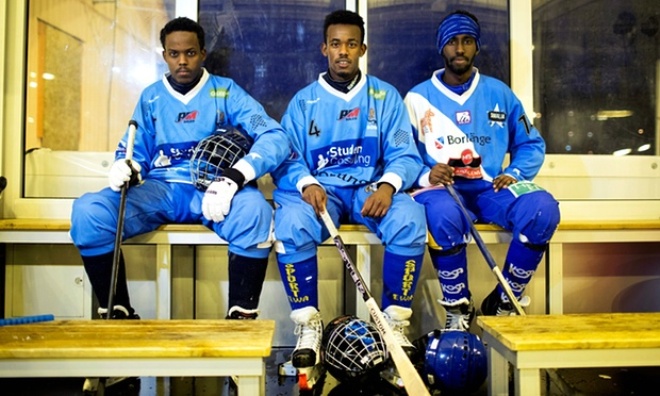
Members of the Somali Bandy team in Borlänge, Sweden Photograph: Ivan Ogilvie for the Guardian
"There was already a refugee football team, and I thought we could do something similar, helping the Somalis get on ice.”
The team’s chairman, Mursal Ismail, a 34-year-old who has lived in Sweden since 2002, said it’s an important way "for Somalis to show themselves doing good things for their host country.”
Guul guul guul
After helping to establish the team, Grandin met film-maker Patrick Andersson, who had the idea to register Somalia with the International Bandy Federation, and things accelerated. Soon after, they entered the 2014 world championships and found themselves with just six months to assemble a strong group of worthy players.
"We hold the record for the ‘world’s worst team ever to play in the championship’, says Grandin.
But although they didn’t find sporting success last year, they certainly made a splash in Sweden’s media.
Two of the country’s well-known TV presenters made a film about the team’s lives, international outlets paid them a visit, and a rap song, Guul guul guul Somalia ( which roughly translates to "have success and win”) became a motivational dressing room staple for the young team.
Suddenly the players began to be recognised around town. "We got ‘great vibes’ from people on the bus, it meant a lot,” says 21-year-old Somali player, Amhed Hussein.
Integration on ice
Hussien first heard about bandy through a friend who said it "was something to do with the winter” and tried to teach himself the sport by watching videos on YouTube.
Bandy, ice hockey’s less violent cousin, originated in the UK in the 19th century before spreading to Scandinavia and the USSR, who set up the international bandy federation in 1955. Today, it’s ingrained in Sweden’s sporting DNA and remains popular in Russia.
Unlike people who grew up in Borlänge, the only ice Hussein had seen before was the cubes used to cool Coca-Cola. Though they all the team had expert coaching, he says he struggled most with the skating – "you fall on the ground again and again and your body can’t feel anything anymore.”
His team-mate Mohammed Ahmmed, 19, said he was enthralled by the opportunity to represent his country. "My homeland is lagging in sport because of the war and to represent one that does not even exist in Africa was unthinkable,” he says.
"Bandy is similar to football, the rules, positions and the gameplay, but the hardest thing is to be able to skate and manage the stick,” explains Ahmmed.
Though the players talk of being under a lot of pressure and training hard, it’s not just about the sport, Ismail says, but about trying to "make integration work”.
For Grandin, the litmus test of the success the project will be shown in how "political language changes and how people’s hearts change.”
Doors shutting
Sweden, now home to more than 200,000 refugees and asylum seekers, once called itself a "humanitarian superpower” with an open door policy for new arrivals, yet in November prime minster Stefan Löfven pleaded for respite: "We simply cannot do it anymore,” he said.
The rising number of refugees has exacerbated tensions across the country. Some new arrivals have been forced to live in camps, others have experienced face death threats and arson attacks. Ahmmed says that while the situation might not have an immediate impact on team morale, "of course it’s going to affect us.”
"It was always racists and other extremists who used to say ‘stop immigration’ and now it’s the government. You start thinking ‘what will happen next’? ‘Will I become a citizen or they will send me home?’,” he says.
In last year’s parliamentary elections votes for the anti-immigration party, the Swedish Democrats, stood at 17% in Borlänge, up on the national average of 13%, says Grandin.
Ismail admits that he has faced "some hostilities” but maintains that "the majority of the people are very welcoming.”
Regardless of the political tensions, the players feel they are peaking. Hussein describes time with his team-mates as "true, real, cool, and beautiful: what motivated us was representing our country – that’s what I’m most proud of.”
Three years on they are furiously practicing the sport – a version of ice hockey played with a ball – in the hope they will be selected to represent Somalia at the third bandy world championships, to be held in Russia in February.
The team are based in the small Swedish town of Borlänge, around 200km north of Stockholm, which is home to more than 3,000 Somalis. It’s Cool Runnings 2.0, set to the backdrop of the refugee crisis.
Hans Grandin, who sits on the Somali team’s board, was nearing retirement when he realised he wanted to do something to change the social fabric of his town. "Integration is not, was not, as good as it can be. It takes a long time, especially in Sweden, where people are cold and slow,” he says.

Monday, January 4, 2016

Members of the Somali Bandy team in Borlänge, Sweden Photograph: Ivan Ogilvie for the Guardian
"There was already a refugee football team, and I thought we could do something similar, helping the Somalis get on ice.”
The team’s chairman, Mursal Ismail, a 34-year-old who has lived in Sweden since 2002, said it’s an important way "for Somalis to show themselves doing good things for their host country.”
Guul guul guul
After helping to establish the team, Grandin met film-maker Patrick Andersson, who had the idea to register Somalia with the International Bandy Federation, and things accelerated. Soon after, they entered the 2014 world championships and found themselves with just six months to assemble a strong group of worthy players.
"We hold the record for the ‘world’s worst team ever to play in the championship’, says Grandin.
But although they didn’t find sporting success last year, they certainly made a splash in Sweden’s media.
Two of the country’s well-known TV presenters made a film about the team’s lives, international outlets paid them a visit, and a rap song, Guul guul guul Somalia ( which roughly translates to "have success and win”) became a motivational dressing room staple for the young team.
Suddenly the players began to be recognised around town. "We got ‘great vibes’ from people on the bus, it meant a lot,” says 21-year-old Somali player, Amhed Hussein.
Integration on ice
Hussien first heard about bandy through a friend who said it "was something to do with the winter” and tried to teach himself the sport by watching videos on YouTube.
Bandy, ice hockey’s less violent cousin, originated in the UK in the 19th century before spreading to Scandinavia and the USSR, who set up the international bandy federation in 1955. Today, it’s ingrained in Sweden’s sporting DNA and remains popular in Russia.
Unlike people who grew up in Borlänge, the only ice Hussein had seen before was the cubes used to cool Coca-Cola. Though they all the team had expert coaching, he says he struggled most with the skating – "you fall on the ground again and again and your body can’t feel anything anymore.”
His team-mate Mohammed Ahmmed, 19, said he was enthralled by the opportunity to represent his country. "My homeland is lagging in sport because of the war and to represent one that does not even exist in Africa was unthinkable,” he says.
"Bandy is similar to football, the rules, positions and the gameplay, but the hardest thing is to be able to skate and manage the stick,” explains Ahmmed.
Though the players talk of being under a lot of pressure and training hard, it’s not just about the sport, Ismail says, but about trying to "make integration work”.
For Grandin, the litmus test of the success the project will be shown in how "political language changes and how people’s hearts change.”
Doors shutting
Sweden, now home to more than 200,000 refugees and asylum seekers, once called itself a "humanitarian superpower” with an open door policy for new arrivals, yet in November prime minster Stefan Löfven pleaded for respite: "We simply cannot do it anymore,” he said.
The rising number of refugees has exacerbated tensions across the country. Some new arrivals have been forced to live in camps, others have experienced face death threats and arson attacks. Ahmmed says that while the situation might not have an immediate impact on team morale, "of course it’s going to affect us.”
"It was always racists and other extremists who used to say ‘stop immigration’ and now it’s the government. You start thinking ‘what will happen next’? ‘Will I become a citizen or they will send me home?’,” he says.
In last year’s parliamentary elections votes for the anti-immigration party, the Swedish Democrats, stood at 17% in Borlänge, up on the national average of 13%, says Grandin.
Ismail admits that he has faced "some hostilities” but maintains that "the majority of the people are very welcoming.”
Regardless of the political tensions, the players feel they are peaking. Hussein describes time with his team-mates as "true, real, cool, and beautiful: what motivated us was representing our country – that’s what I’m most proud of.”



 0
0 
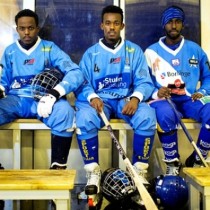







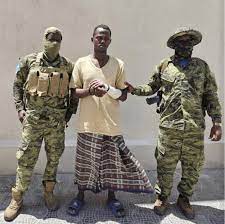



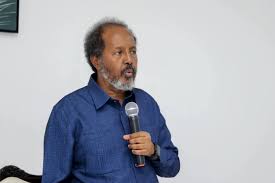
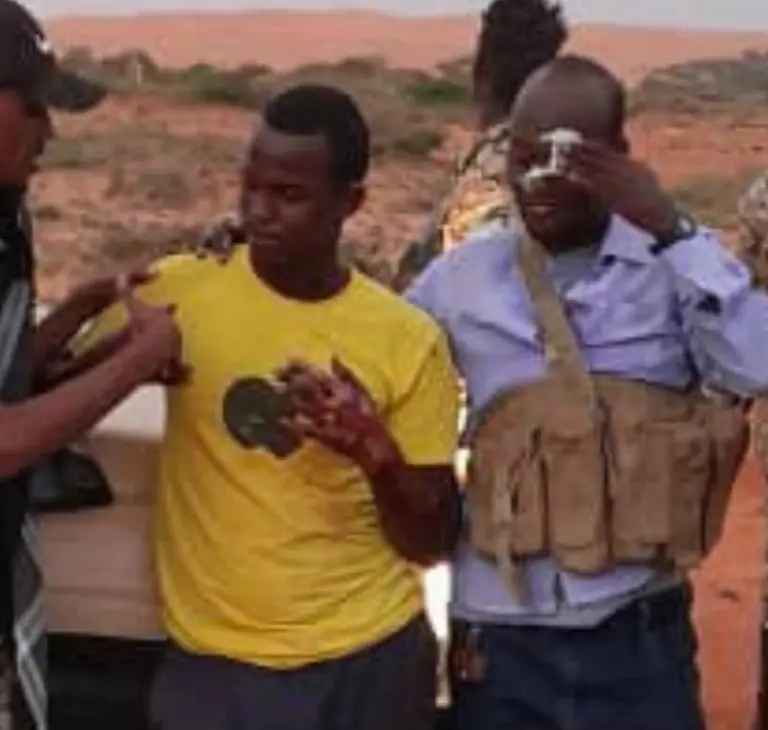
The Cool Runnings of the refugee crisis: Somalia's bandy team at home on ice
Somalis living in Sweden are experiencing increased hostility as the political climate shifts against migrants. Can sport help aid integration? advertisements Most of Somalia's bandy team had never seen snow or ice before they arrived in Swede